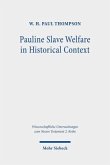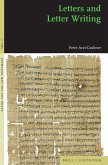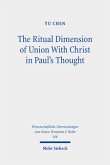Study of the Deutero-Pauline letter to the Ephesians in the New Testament has typically focused on ecclesiology by assuming a generalized notion of church. In contrast, in this interdisciplinary volume the contributors delve into an array of underlying subjects in order to give the terms governing our understanding of Ephesians a much-needed further specificity and an enlarged foundation. The contributions in this collection address the following questions: Is the nature of the church in fact the main topic of Ephesians? If so, what exactly is that church's relationship to contemporary forms of Jewish community? What are the proper conceptualities and terminologies for analyzing the political, juridical, cultural, cultic, architectural, or religious distinctions most relevant to Ephesians? In what ways is Ephesians dependent on the Pauline letters and on Colossians-old questions explored in new ways? Highly attuned to questions of social location, space and urban setting, philosophy, epistolography, and ancient Judaism(s), in these essays the agenda for an improved reading of Ephesians is set and exegetical analysis in New Testament studies is enhanced.
Bitte wählen Sie Ihr Anliegen aus.
Rechnungen
Retourenschein anfordern
Bestellstatus
Storno







